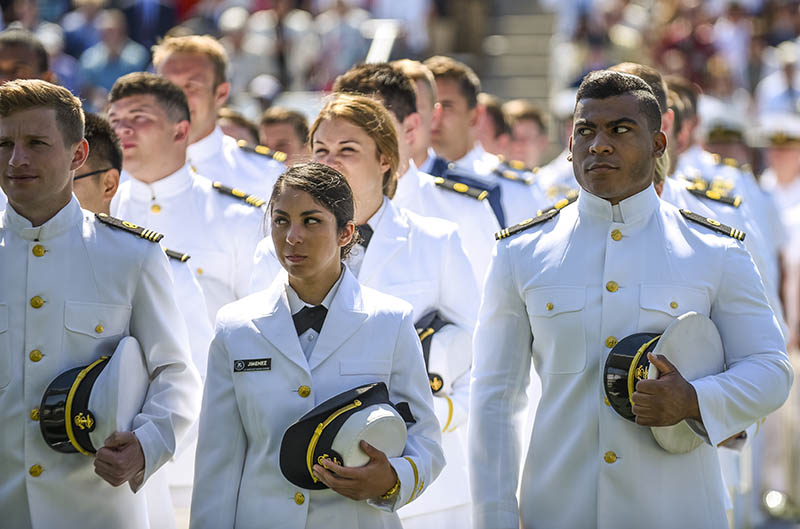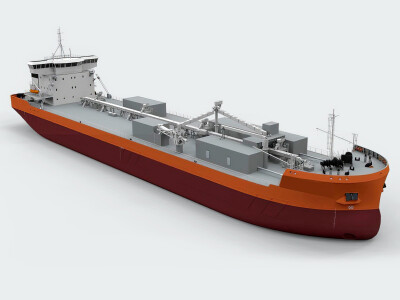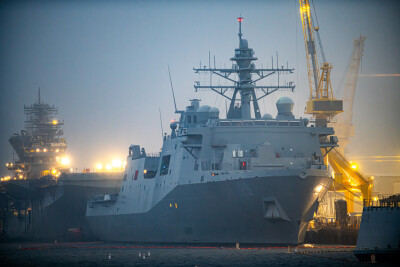Working with the waterways, we normally think of the Army Corps of Engineers when it comes to planning, designing, building and operating lock and dams along the nation’s inland river system.
But with the outbreak of COVID-19 marching across the globe and now affecting a broad swath of the U.S., we’re seeing the other missions of the Corps on display.
In response to a request from New York Gov. Andrew Cuomo, the agency is dispatching its engineering and building experts to New York to set up additional medical facilities. Cuomo said his state faces a disastrous shortage of hospital beds as the disease spreads beyond the more than 4,100 confirmed cases statewide as of 3 p.m. eastern today.
The idea is to retrofit places like state buildings, military bases and college dorms into temporary medical facilities ready to treat those suffering from acute symptoms of the coronavirus. And the Corps, with its expansive staff of highly-trained engineers, is equipped to do just that, much as it did during Hurricane Katrina in 2005.
Defense Secretary Mark Esper gave Cuomo his “full commitment that we’ll get the Corps there soonest.”
Esper also dispatched the USNS Comfort hospital ship to New York. Normally sent into service in war zones, the vessel has 1,000 treatment and operating rooms.
While President Trump has promised the full force of the federal government’s resources to combat the virus, the Maritime Administration has remained publicly quiet. As it has also done during other national emergencies like Katrina, Marad has the capability to dispatch the fleet of training vessels now used at the seven maritime academies for emergency use. I contacted Marad today and asked if this is under consideration and could not get an immediate answer. Nothing about the coronavirus is posted on the agency’s website.
On the academy front, all of the training schools have suspended classes, moved to remote learning and canceled sport events.
The U.S. Merchant Marine Academy in Kings Point, N.Y., has told its midshipmen not to return to campus after spring break. In a notice to students, USMMA said it is exploring remote learning for certain courses and is looking at alternative teaching methods and technologies for courses requiring labs or in-person assessments.
Students at Massachusetts Maritime Academy and SUNY Maritime in New York vacated their dorms on March 17, and remote learning will begin March 23. Maine Maritime halted classes on March 18, and cadets must vacate their dorms by March 22. They will begin remote learning on March 30.
At Texas A&M Maritime Academy in Galveston, Texas, classes move to distant learning March 23 and the summer sea term is expected to go on as planned but only with domestic ports-of-call. California Maritime Academy has temporarily suspended in-person classes and gone to remote learning, and that will continue after spring break. Cal Maritime plans to resume in-person classes on April 20, depending on the situation, and also hopes to hold commencement on May 2.
Most other schools have not yet announced the fate of commencements or spring training cruises or cadet shipping, which give students the chance to complete the sea time required to qualify for a Coast Guard license as a ship’s deck or engineering officer. These decisions will depend on how the virus situation develops over the next few months.
In letters to their communities, academy presidents stressed the fluidity of the situation, the newness of the remote learning process and the challenges it presents to maritime training that relies greatly on hands-on experiences, laboratory work, collaborate study and simulators.
“This is new territory for everyone and we will need to be patient during this transition,” said Dr. William Brennan, Maine Maritime Academy president. “It is going to require that all of us adapt to using different or new methods of communicating, instructing, learning and collaborating.”
But he and others recalled challenges that their schools have faced and overcome in the past. “I have confidence that we will weather this storm, too,” Brennan said.
Check out the latest on the coronavirus pandemic and the workboat industry here.





